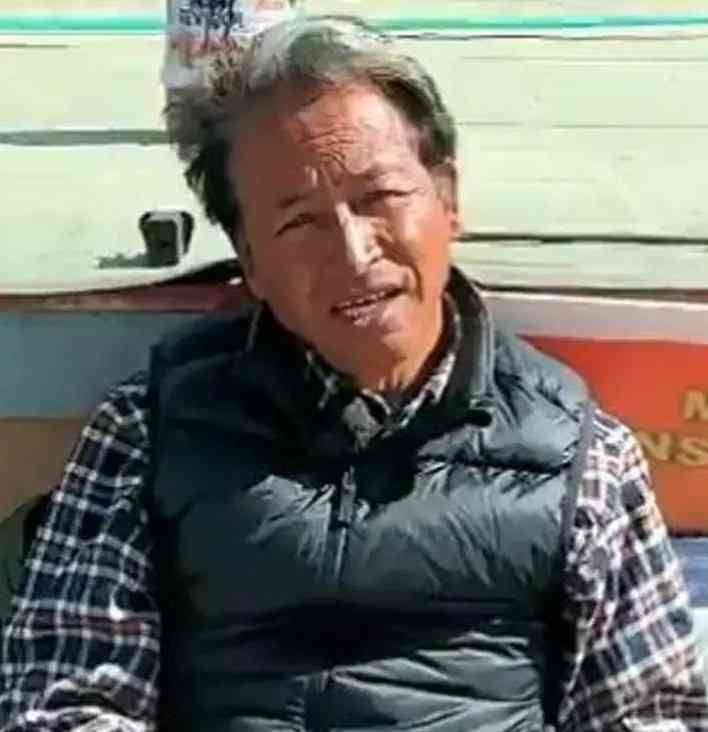New Delhi/Leh: The Union Ministry of Home Affairs (MHA) has revoked the Foreign Contribution Regulation Act (FCRA) licence of the Students’ Educational and Cultural Movement of Ladakh (SECMOL), an organisation founded by prominent educationist and activist Sonam Wangchuk. The ministry cited several financial irregularities, including alleged violations linked to foreign funds, as grounds for the cancellation.
According to officials, discrepancies were uncovered in SECMOL’s financial records, including unreported cash deposits, local funds wrongly transferred into FCRA accounts, and a foreign contribution from Sweden that authorities deemed “against national interest.” The move follows an inquiry initiated by the Central Bureau of Investigation (CBI) into SECMOL and the Himalayan Institute of Alternatives Ladakh (HIAL), both institutions associated with Wangchuk.
Financial Irregularities Cited
In its order, the MHA said SECMOL had deposited ₹3.5 lakh in its FCRA account in 2021–22, allegedly from the sale of a bus purchased earlier using foreign funds. While the organisation maintained that FCRA rules required the sale proceeds of such assets to be deposited in the FCRA account, the ministry flagged the transaction as a violation, claiming it was received in cash and inadequately disclosed.
The ministry further pointed out that SECMOL had reported a donation of ₹3.35 lakh from Wangchuk himself as foreign contribution, but the transaction was not reflected in the FCRA account. Another irregularity flagged was the transfer of ₹54,600 in local funds into the FCRA account, which the organisation admitted was an error.
Most notably, a grant of approximately ₹4.93 lakh from Sweden for youth workshops on climate change, migration, organic farming, and food security was singled out. While SECMOL argued the funds were used strictly for educational activities, the ministry concluded that spending foreign contributions on studies linked to “sovereignty” amounted to acting against national interest.
Invoking Section 14 of the FCRA, the MHA cancelled SECMOL’s registration with immediate effect, effectively barring it from receiving or utilising foreign funds.
CBI Scrutiny Deepens
The cancellation came as CBI officials spent more than a week in Ladakh, examining records of SECMOL and HIAL. While no FIR has yet been lodged, the probe stems from a complaint filed by the MHA regarding receipt of foreign funds without proper FCRA clearance. Officials have reportedly been scrutinising transactions dating back to 2020.
Speaking to PTI, Wangchuk confirmed that CBI teams had visited the institutions recently. “They claim we violated FCRA norms by receiving foreign contributions. But these were payments for knowledge-sharing services with the UN, a Swiss university, and an Italian organisation, with taxes duly paid,” he said. He also alleged that the investigators had begun demanding financial details from periods not mentioned in the complaint.
Protests and Political Blame
The ministry’s move comes against the backdrop of violent protests in Ladakh earlier this week. Demonstrations demanding statehood and constitutional safeguards turned violent on Wednesday, leading to clashes with police.
At least four people were killed, and several others injured when security forces opened fire after protesters set ablaze a BJP office in Leh and torched vehicles, including a police van. Tear gas was later used to disperse the crowds.
The Centre has accused Wangchuk of instigating the protests. The activist, however, rejected the charge, attributing the violence to widespread frustration among Ladakhi youth. “For six years, young people have faced unemployment and broken promises at every level. This is an outpouring of anger, not my instigation,” he said.
“Targeted From All Sides”
Wangchuk, known internationally for his innovative education models and advocacy for sustainable development, has been a vocal leader of the movement seeking statehood for Ladakh since its separation from Jammu and Kashmir in 2019.
The activist alleged that multiple cases had been mounted against him in recent months, including a sedition complaint, a land lease dispute concerning HIAL, income tax notices, and a revived allegation of unpaid wages. “It’s like guns blazing from all sides,” he remarked.
Expressing concern for his safety, Wangchuk warned that authorities might try to detain him under the Public Safety Act (PSA), which allows for up to two years of imprisonment without trial. “I see they are building up a case to throw me in jail under PSA. I am ready for that, but Sonam Wangchuk in jail may cause them more problems than a free Sonam Wangchuk,” he added.
SECMOL’s Role in Ladakh
Founded in the late 1980s, SECMOL has long been celebrated for pioneering educational reforms in Ladakh, particularly for underprivileged students. Alongside HIAL, the organisation provides free schooling and stipends, promoting sustainable practices and innovative learning models.
The cancellation of its FCRA licence now raises questions about the future of these initiatives, as foreign contributions have played a key role in sustaining operations.
Broader Implications
The crackdown on Wangchuk’s institutions comes amid rising tensions in the strategically sensitive region, where demands for constitutional safeguards under the Sixth Schedule of the Constitution and full statehood have been gaining momentum.
With protests escalating into violence and allegations of government pressure on activists, the developments highlight growing friction between local aspirations and central authority.
For now, the cancellation of SECMOL’s licence adds another layer to the widening standoff. While the government insists it is acting strictly within the law to protect national interests, Wangchuk and his supporters see it as part of a broader campaign to silence dissent in Ladakh.








